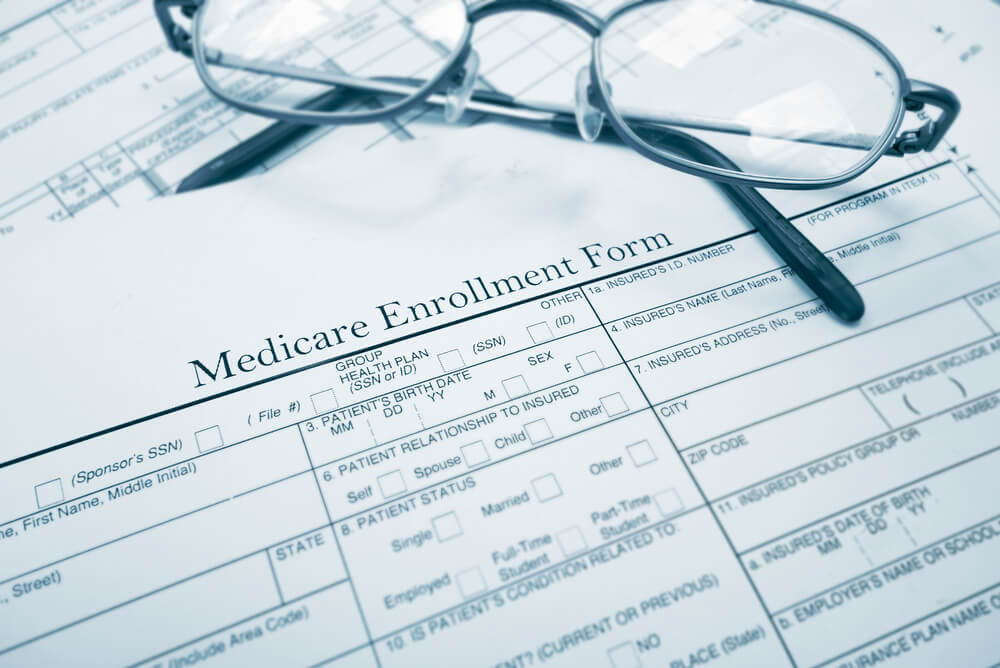If you’re approaching retirement age, you may be asking yourself, “when does my Medicare coverage start?” In some cases, your Medicare coverage automatically begins. However, in other cases, you may need to sign up, or you may choose to postpone starting Medicare coverage. This article will explain relevant Medicare-related terms and conditions, such as the special enrollment period, and shed light on the commonly asked question, “when does my Medicare coverage start?”
If you’re looking for the best Medicare Advantage Part C (also known as just Part C or MA plans), we’ve got you covered. Read on for everything you need to know about Medicare coverage.
What Is Medicare, and When Are You Eligible for Medicare?
In short, Medicare is a federal health insurance program for people aged 65 or older, certain people with disabilities, and individuals with end-stage renal disease (also known as ESRD, a permanent kidney failure that requires transplant or dialysis).
So, When Are You Eligible for Medicare?

You may be asking yourself, “when does my Medicare coverage start?” and here is the answer: You are eligible for full Medicare benefits once you turn 65. Additionally, you must be a citizen of the United States or a permanent legal resident who has lived in the United States for a minimum of five years.
On top of that, you may also be eligible if you are getting railroad retirement benefits, Social Security, or have worked enough years to receive these benefits (without collecting them yet).
You may also be eligible if you or your marital partner is an employee of the government. In some situations, retirees can apply too – only if they paid Medicare payroll taxes while working.
Suppose that you are younger than 65, how can you be eligible for Medicare in this scenario? If you are younger than this age, here are some cases in which you might be eligible:
- The Railroad Retirement Board grants you a disability pension and you meet specific conditions.
- You get Social Security disability perks for a minimum of 24 consecutive months.
- You suffer from permanent kidney failure requiring a kidney transplant or dialysis.
- You have Lou Gehrig’s disease, or ALS (also known as amyotrophic lateral sclerosis).
To summarize the answer to the question: “When are you eligible for Medicare, and when does Medicare start?”, coverage typically starts once an individual turns 65. The benefits will become available just one-month post-sign-up. In some cases, those younger than 65 with specific illnesses and disabilities can qualify for Medicare.
The Four Parts of Medicare
There are four parts of Medicare: Parts A, B, C, and Part D.
Part A includes hospital and inpatient coverage, Part B covers medical and outpatient coverage, Part C provides an alternative way to get Medicare benefits, and Part D offers coverage for prescription drugs.
Overall, these different Medicare parts will assist in covering specific medical needs. However, most Medicare-eligible individuals choose Part A and Part B benefits through the Original Medicare or the fee-for-service program that the federal government offers. Sometimes it’s also referred to as Fee-for-Service Medicare or Traditional Medicare. The government funds the health care services under Original Medicare.
What is Medicare Advantage Part C?
Another way to receive Medicare Part A and B coverage is through Medical Advantage. These plans are also called MA Plans or Part C plans, and they are provided by Medicare-approved private companies that adhere to Medicare rules. Individuals who have a Medicare Advantage Plan can have the Original Medicare, but most of the Part A and B coverage won’t come from Original Medicare. Instead, it will come from the Medicare Advantage Plan.
In brief, Medicare Advantage Part C plans include Medicare Part A or hospital insurance, Medical Part B or medical insurance, and Part D or drug coverage.
Benefits of Medicare Advantage Part C
As you may understand by now, Medicare Advantage Part C coverage is extensive. Below are some of the plan’s benefits:
- Vision care, including contacts and glasses
- Routine dental care, including dentures, exams, and X-rays
- Fitness centers and wellness programsHearing care, including aids for hearing and testing
When comparing Medicare Advantage Part C to Original Medicare, the main difference is that the latter doesn’t cover prescription drugs. With Original Medicare, you only get Part A (covering home care, inpatient medical needs, and hospitalization) and Part B (preventative care, screenings, medical tests, and doctor visits).
Many private insurers provide Medicare for only Part D. However, some areas of healthcare may still require protection, which is where Medicare Advantage Part C comes in handy.
In a nutshell, below are some additional benefits of Medicare Part C relating to healthcare protection:
- Most Medicare Part C plans provide coverage for prescription drugs
- Caps out-of-pocket expenses
- Offers coverage for services Original Medicare doesn’t cover
What is the Medicare Special Enrollment Period?
Life happens. When you lose insurance coverage or move from one insurance to another, you can make adjustments to your Medicare prescription drug coverage and your Medicare Advantage. SEPs or Special Enrollment Periods are opportunities to make these adjustments.
Each Medicare Special Enrollment Period has its own set of rules for when you can make changes and what kinds of changes you can make. For example, if you have moved to a new address that is not in the plan’s service area, you can switch to a new Medicare Prescription Drug plan or a Medicare Advantage plan. If you notify your plan about it prior to moving, the opportunity to change begins the month before you move. Then, that opportunity window is open for two entire months post-moving.
In some cases, you might lose your current coverage for Medicaid, in which you can then join a Medicare Prescription Drug plan or a Medicare Advantage plan. You can also change your current plan to another Medicare Prescription Drug Plan or Medicare Advantage Plan, or drop one of these plans (Medicare Prescription Drug Plan or Medicare Advantage) and go back to Original Medicare. However, it’s important to remember that your chance for changes lasts for three months if you lose Medicare coverage.
Can You Lose Your Medicare Coverage?

Depending on which Medicare plan you enroll in, there are specific reasons why you may lose these benefits. Here are some of the most common reasons:
- Your plan is discontinued
- You stop paying your plan premiums
- You no longer have a disability that qualifies you
- You provided misleading information or you provided false information on your plan application
- You engaged in disruptive behavior or Medicare fraud
Arguably the easiest way to lose your Medicare C coverage is to fail to pay the premiums. If you fall behind on the payments for your Original Medicare, you will receive a typical bill as the first notice. Following this, you will get a Second Notice. Finally, if you fail to adhere to the deadline presented on the Second Notice, you will get a Delinquent Notice. If you do not pay the premium by the end of that month, your Medicare coverage will be terminated.
If you’re searching for a trusted healthcare provider, contact a Corus Advantage affiliated physician today.
